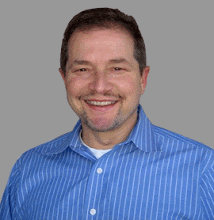You’d think that nothing but good would come from that, but some experts today dislike the concept of clean foods because it implies a dichotomy where other foods, by default, are “dirty” or forbidden - as in, you can never, ever eat them again (imagine life without chocolate, or pizza… or beer! you guys). Some physicians and psychologists even believe that if taken to an extreme, a fixation on healthy food qualifies as a new eating disorder called orthorexia.
Personally, I have no issues with the phrase “clean eating.” Even if you choose to eat clean nearly 100% of the time, I don’t see how that qualifies as a psychological disorder of any kind (I think people who eat at McDonald's every day are the ones who need a shrink).
However, I also think most Burn The Fat blog readers would agree that any behavior - washing your hands, cleaning your house, or even exercise or eating health food - can become obsessive-compulsive and dysfunctional if it takes over your life or is taken to an extreme. In the case of diet and exercise, it could also lead to or overlap with anorexia.
It’s debatable whether orthorexia is a distinct eating disorder, but I’m not against using the word to help classify a specific type of obsessive-compulsive behavior. I think it’s real.
As some of the reader comments from part one reveal (rather ironically in a discussion on orthorexia), many people are quite “enthusiastic” in defending – or preaching about - their dietary beliefs: no meat, no grains, no dairy, only organic, only raw, only what God made, and on and on the rigid all-or-nothing rules go.
What people choose to eat is often so sacred to them, it makes for tricky business when you’re a nutrition educator.
On the other hand, I can’t help feeling that there’s got to be a way to better help the countless individuals who haven’t yet formulated their own philosophies, and who find nutrition overwhelmingly confusing. For many people, even a simple walk down the aisles of a grocery store, and trying to decipher the food labels and nutrition claims is enough to trigger an anxiety attack.
That’s where I hope this is useful. I can’t draw the line for you, or tell you what to eat, but I can suggest a list of “new rules” for clean eating which simplifies nutrition and clears up confusion, while giving you more freedom, balance, life enjoyment and better results at the same time.
TOM VENUTO
New Rule #1: Define what clean eating means to you
Obviously, clean eating is not a scientific term. Most people define clean eating as avoiding processed foods, chemicals and artificial ingredients and choosing natural foods, the way they came out of the ground or as close to their natural form as possible. If that works for you, then use it. However, the possible definitions are endless. I’ve seen forum arguments about whether protein powder is “clean.” Arguments are a waste of time. Ultimately, what clean eating means is up to you to define. Whether your beliefs and values have you restrict or expand on the general definition, define it you must, keeping in mind that your definition may be different than other people.
Subscribe to:
Post Comments (Atom)




No comments:
Post a Comment